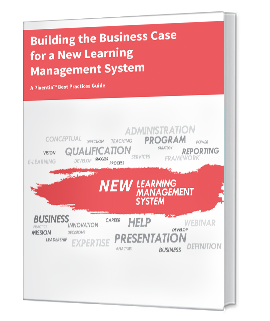
A learning management system is complex and requires connections to other complex systems. Unless you have the expertise and resources to manage the implementation yourself, you will need an implementation partner.
The right partner can be the difference between success and failure. Failure can come in many forms – from not meeting your objectives to canceling the project and starting over.
Before you select a partner, you will need to consider how you will manage the project. We will examine three ways to do it: with the vendor, with an independent partner, or on your own.
Vendor Implementation
There are some advantages to partnering with your vendor.
- The people doing the work will be knowledgeable about the application and how to configure it to your specifications.
- You will have direct access to vendor technical resources.
- The business that sold you the service is accountable for making it work for you.
However, the vendor will most likely want a quick, standardized configuration. The vendor may not be wholly invested in meeting your specific customization needs unless you are a very large customer. Many vendors offer a standardized package for smaller businesses. The costs are lower than flexible configuration.
The vendor may tend to be interested in promoting their product instead of helping you find the right solution for your business. You may want to hire an independent consulting company to find the right solution. After you make your selection, the consultant will then serve as your learning management system implementation partner, help you hire a partner, or turn you over to the vendor.
Implementation Partners
In the early days of software as a service, vendors provided most of the project consulting. Independent consultants helped with fluctuating demand. Now, many vendors do fewer implementations and rely almost entirely on independent contractors to do their installations.
Contractors may be obligated exclusively to one vendor, or may be entirely separate, working with many vendors. What is important is that your partner must have experience with the solution you choose and in your industry niche.
If you hire a consulting company to help you find the right solution, they will tend to guide you to solutions with which they are familiar. This is not a bad thing if the solutions meet your needs, but don’t compromise on features important to you.
An independent partner will be invested in your success. Their reputation depends on your satisfaction.
Self-Managed Implementation
If you have the expertise and resources, you may want to manage the implementation yourself and hire consultants as you need them. In our experience, this method has the highest percentage of project failures.
How to choose an LMS implementation partner
Whether you are using a vendor-recommended partner or not, you must investigate your candidates thoroughly.
- Get recommendations from your colleagues and contacts. Find out who has successful first-hand experience and get their opinions.
- Visit each company’s website to get a feel for how they do business. Do they offer useful information? Their web pages, blogs, and case studies should be easy to understand, not technical jargon. Read their case studies. You will be looking for stories about customer success, not promotional pieces.
- Use screening phone calls to get a feel for how each company will work with you. If they listen to your needs and take a keen interest in your success, keep them on your list. If the first thing they want to do is schedule a demo, you may wish to consider another candidate who doesn’t want to rush you to sign a deal. At this point, you are only gathering information.
- After you have absorbed the information available, you will be ready to schedule a meeting or a demo. Make sure your group includes representation from all your stakeholders.
- Pay attention to how they answer your questions. A condescending attitude is a telltale sign.
- Ask probing questions about how your proposed partner will handle integration. The best partners will have complete knowledge of integration methods and how to manage data transfers and imports to and from many systems.
- Find out how they approach customization. The more complex a customization, the more expensive it will be, now and in the future. The best partners will be able to manage customizations so they don’t interfere with upgrades.
- Just as you would when you hire a highly skilled executive, spend some time with each of your candidates outside the demo process. Learn how they think and what their values are. Make sure you have a cultural fit.
- Direct experience with the particular solution in your industry sector is important, but be wary of a canned solution. Even in an industry niche, not all companies are alike.
- People do change jobs. A less-experienced company may have very experienced people. Insist on knowing who will be working on your project and what their qualifications are.
- Ask for customer information and contact them.
- Check financial stability. Ask for references and call them.
This process will help you make your project successful. Time invested up front will save expensive rework later.
Phenomecloud is an enthusiastic family of individuals, fervent to make lives simpler through effective use of technology. Our mission is to implement solutions that drives business results. Know more insights from our thoughts and experience.
Contact us today or call 1-855-978-6816 to talk with us about your business needs






Leave a Comment